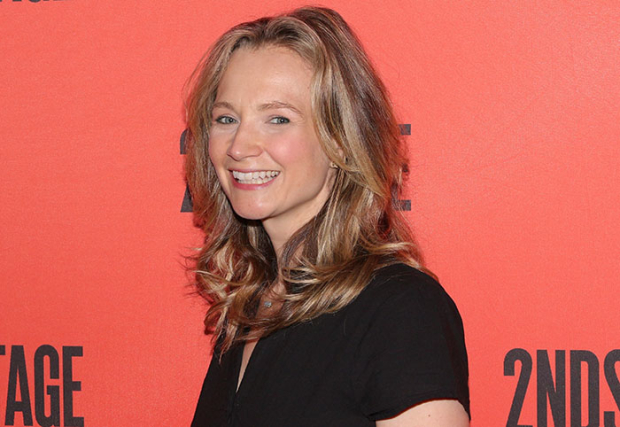Bess Wohl's Grand Horizons Is About Older People, and Audiences Are Thrilled
Wohl’s Broadway-bound play, now making its world premiere at Williamstown Theatre Festival, shows that you’re never too old for self-discovery…or divorce.
For Bess Wohl, this year is about seeing the fruits of a lot of labor. In May, Manhattan Theatre Club presented the world premiere of her play Continuity; Second Stage is getting ready to open her play Make Believe off-Broadway; and in December, she'll be moving on up to the company's Broadway stage (her Broadway debut) with her newest play, Grand Horizons.
Grand Horizons, now in its pre-Broadway world premiere at Williamstown Theatre Festival, is titled after the quiet retirement community Wohl's main characters, Nancy (JoBeth Williams) and Bill (Jamey Sheridan), move to after 50 years of marriage. But in lieu of jewelry or a Caribbean cruise, Nancy decides to celebrate the golden anniversary by asking for a divorce.
Enter the uninvited damage control services of her sons, Ben (Thomas Sadoski) and Brian (Jesse Tyler Ferguson), and daughter-in-law Jess (Ashley Park), whose dependencies on Nancy as mother, caretaker, and family lynchpin get to the heart of Nancy's belated exploration of her own identity. Wohl has less than two weeks to see how audiences react to the play before the final push to Broadway, but already she's learning that this story might be satisfying a hunger she didn't know existed.

(© David Gordon)
This interview has been condensed and edited for clarity.
When Williamstown and Second Stage co-commissioned you to write a play, why was this the idea that rose to the top of the list?
I know, it's really strange, right? These things are always more intuitive than logical but I had been partially inspired by witnessing a bunch of friend's parents getting divorced. It happened with two of my closest friends sort of at the same time. Both of their sets of parents were in their mid-70s to 80-ish, and seeing that experience through my friends' eyes really inspired me to start thinking about this. The more that I've been working on it and thinking about it, the more I've encountered other people where this is happening. So it feels like there is something in this story that is really underexplored and yet very present in our culture right now. This perspective on love and getting older and how we experience people at that age feels like it's underrepresented.
How do you, as a young playwright, channel the feelings of people in a life stage you've never experienced?
I visited some senior living communities. People there were very open with me and wonderful about sharing details of their lives. Also just thinking about my own life and wondering how will I feel at that time, and what regrets might I have, or what mistakes might I have made. While obviously Nancy is a different age from me, the idea of wondering if you've lived the right life, or feeling like you don't recognize what you see when you look in the mirror is something that you can relate to at any age. All of those pieces of Nancy feel very personal and alive to me, and it doesn't feel like a stretch to try to imagine what she might be feeling.
You also have the Jess character (played by Ashley Park), a much younger woman and soon-to-be mother, who seems to be struggling with similar issues. Is Jess headed to the same place as Nancy, or are her challenges different?
That's a great question. I did a lot of work on her character and one of the things that I kept coming back to was all the different ways that you can feel not seen in life and in a relationship. For Nancy, in certain ways it's tied to her generation. Of course women have made enormous strides in the past 50 years. But I feel like — especially as you become a mother in our culture, which is the point at which we meet Ashley's character — that your own identity is somehow compromised. And I think what that character is going through is this feeling of, "Am I giving up who I am as a separate person in service of motherhood? Will I still be seen as myself, or will I only be seen as a vessel for this other person?" How to have your own identity and also live in relation to other people is a lot of what the play's about.
How has it been seeing this play on its feet for the first time? The day I saw it, the audience was extremely vocal.
I know, I've been very surprised at how vocal they are. The actors were telling me at the bar the other night that during one particularly raucous performance they actually felt like they had to kind of stop the audience from reacting so much and retake the reins of the play. It's kind of amazing to go through that process with a play and birth it for the first time.
What has been the best audience reaction you've gotten so far?
Somebody I know was in the ladies room when she overheard these two women in their 80s talking about the play at intermission. One of them said something about how she was tired of seeing plays about young people all the time and she was so happy that this play was about her generation. She said, "Finally — a play for us that's not about Alzheimer's." [laughs] I just didn't even realize that hunger was out there. This is hopefully adding a different color to the conversation and expanding on how we see people at this moment in their lives.







